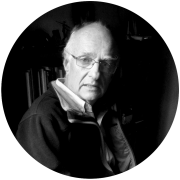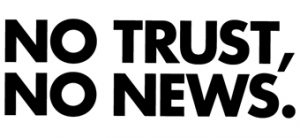Michael Mörth

Statement Michael Mörth
My name is Michael Mörth. I’m a German lawyer and human rights defender. I live and work in Guatemala since 1995. It is a country standing on the cusp of a „failed state“ – probably it has already been surpassed it. In Guatemala, the massive repression from 36 years of civil war is merging with structural corruption, abuse of power and impunity. Although there has been some progress in recent years, the country is a symbol for structural impunity. Both the crimes against civilians during the war and the corruption today as well as the selling off of resources need this system to act with impunity. The state, which is involved in all these crimes, guarantees it. Among several others, I try to change this.
Together with a colleague and friend of mine, I have been working as a lawyer for many years. At first in war crimes trials, for example, the trial against the former dictator Efraín Ríos Montt. In 2013, he was the first former head of state worldwide who was subject of a genocide trial. Later on, we coordinated other cases. In many of them, human rights defenders and leaders of the social movement are systematically criminalized if they resist against major industrial projects such as gold or nickel mines and hydropower projects.
Guatemala is governed and controlled by elites who have no interest in the common good. For years, they implemented a system that only benefits themselves. They use their own capital, but also integrate foreign investors who get illegal concessions.
Since 2010, colleagues and me have been establishing the „office to protect human rights“, the Bufete Jurídico de Derechos Humanos, in Guatemala City. We try to litigate processes in a way that they directly strengthen civil rights, but also to point to structural abuses and to call for reforms. We call this „litigio estratégico“, strategic litigation. However, our work is not limited to this. Causing political change also means for us to follow institutional negotiations and dialogues, to make political incidence, to find technical answers for political problems and to train judges.
The major industrial projects often devastate the country and are therefore rejected by the people. The projects are often backed by financiers from the USA, Canada, Europe or Russia. They make every effort to maintain the system of corruption and repression as it guarantees them enormous profits. Our “Bufete” follows many of these cases and protects – together with our partners – the locals and their interests.
As one might expect, our work doesn’t make us many friends. I have obtained a certain level of publicity, which gives me on the one hand a voice that is publically heard. On the other hand, I’m exposed. As well as our clients and some colleagues, I have been a victim of criminalization due to arbitrary and fictitious charges. They should muzzle us. In theory, our office gets protections arranged by the Inter-American Commission for Human rights. The Guatemalan state, however, does not really enforce them.
There are upright judges, prosecutors, officials and parliamentarians with an honest interest to assert the rule of law. We work closely together with them as well as with prominent human rights defenders and international organizations. Apart from information provided by our clients, those contacts are an important source of information. They know exactly how the system of corruption works and illegal agreements are made. These information are often existential for our work.
The communication with our clients and sources is often digital for many reasons. On the one hand, arrest warrants are often issued against our clients which prohibits them to visit us in Guatemala City for conversations in person. Sometimes they come from communities with 500 to 1000 people campaigning against major industrial projects, but 50 to 60 of them are wanted with a arrest warrant. On the other hand,
Guatemala has in fact no postal service any more. Letters or documents cannot be transferred any more which gives us no alternative to digital communication. Secrecy of our digital communication services has therefore highest priority for us. Our cases are highly sensitive with powerful forces working against us – with economic, political or state origin. Our work could affect interests of foreign and local capital. Moreover, local and foreign intelligence agencies might be interested in intercepting my communication and spread the information in global intelligence networks. This directly endangers my safety, but also the one of my clients and sources – and in the long term, it impairs our fight for human rights.
